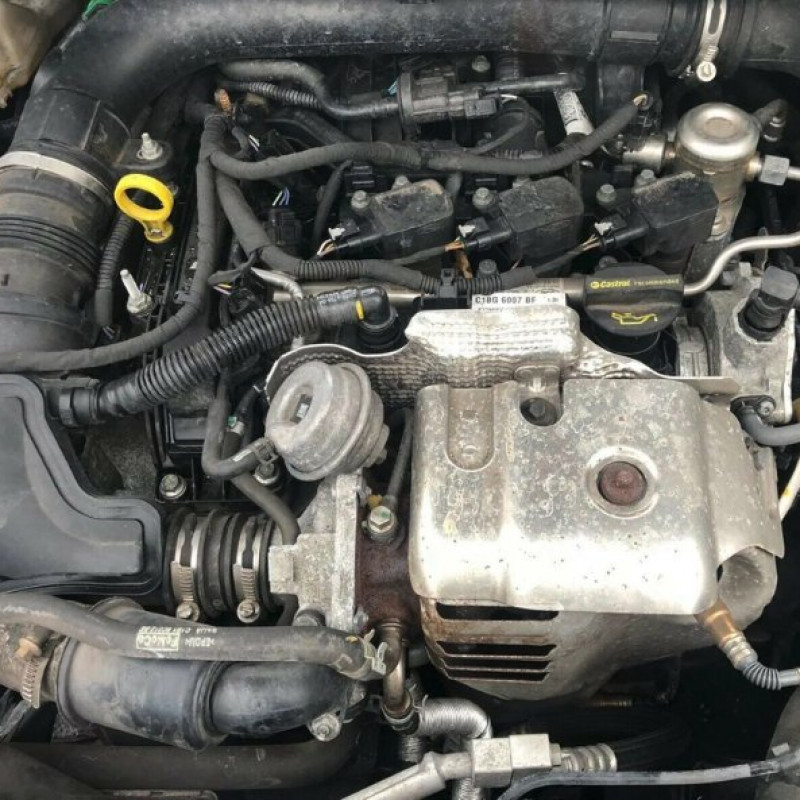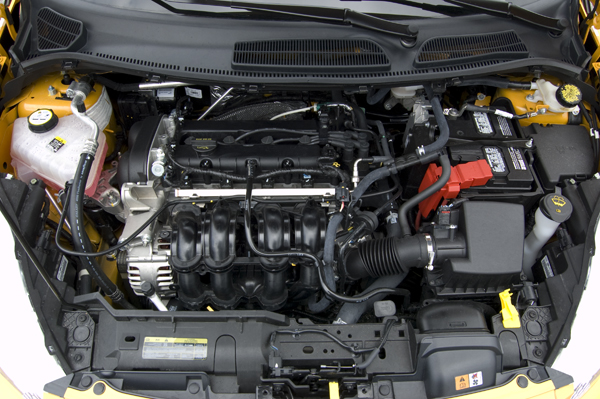Get the Most Out of Your Ford Fiesta Engine with Proper Care
Get the Most Out of Your Ford Fiesta Engine with Proper Care
Blog Article
The Future of Engines: Innovations Driving Lasting Power Solutions
As the automobile market browses the vital change in the direction of sustainability, the future of engines is increasingly defined by groundbreaking innovations. Electric engine developments, together with appealing developments in hydrogen gas cells and biofuels, are reshaping the landscape of power options.
Electric Engine Dope
The evolution of electric engine growths indicates a crucial shift in the aerospace and vehicle markets, driven by the urgent requirement for sustainable choices to fossil gas. This change is identified by significant advancements in battery technology, power electronics, and electrical motor design, which collectively enhance the performance and efficiency of electrical engines.
Current technologies have actually caused the creation of lighter, extra energy-dense batteries, such as lithium-silicon and solid-state batteries, which promise longer arrays and much shorter charging times. Additionally, improvements in electric motor performance, such as using long-term magnets and advanced cooling systems, enable electrical engines to operate effectively under varying conditions. These enhancements not just improve vehicle performance but additionally add to a reduction in total power usage.
Moreover, the assimilation of sophisticated software application algorithms has actually optimized power management in electrical automobiles, allowing for regenerative stopping and predictive charging techniques. As manufacturers significantly embrace electrical propulsion, the aerospace and auto markets are witnessing a standard change towards greener modern technologies. This development not just meets regulatory demands however additionally lines up with customer choices for eco-friendly transportation options, strengthening electrical engines as a foundation of future sustainable wheelchair.
Advancements in Biofuels
As the vehicle and aerospace markets significantly prioritize sustainable energy sources, improvements in biofuels arise as a complementary option to electrical engines. Biofuels, stemmed from organic products such as plants, waste, and algae, present a cutting-edge method for lowering greenhouse gas emissions and reliance on fossil gas.
Current research has focused on improving the performance and sustainability of biofuel production. Second-generation biofuels use non-food feedstocks, lessening competitors with food supply and minimizing environmental impact. Additionally, innovations in artificial biology have actually enabled the engineering of microorganisms to produce biofuels a lot more efficiently, causing greater returns and reduced production costs.
Additionally, the growth of drop-in biofuels enables smooth assimilation right into existing framework, making it possible for a smoother shift for markets generally based on nonrenewable fuel sources. ford fiesta engine. These fuels can be utilized in existing engines without adjustments, facilitating their adoption throughout different fields
Investments in biofuel technology, along with encouraging policies, are necessary to drive development and scalability. As the international area seeks to fight climate change, biofuels supply a practical, immediate solution that straightens with the overarching objective of sustainability in transportation and aeronautics.
Hydrogen Fuel Cell Modern Technology
An expanding number of scientists and business are exploring hydrogen gas cell innovation as a viable alternative to conventional power resources in transportation and power systems. This innovation transforms chemical power from hydrogen into power with an electrochemical response, with water as the only byproduct, making it an eco friendly alternative.
The core of hydrogen fuel cells is the gas cell pile, where hydrogen molecules are divided into electrons and protons. The flow of electrons generates electricity, while protons relocate via a membrane to incorporate with oxygen from the air, creating water. This process causes high efficiency and reduced emissions, positioning hydrogen gas cells as an essential player in the shift to sustainable energy.
Considerable advancements have been made in boosting the resilience and effectiveness of gas cells, together with minimizing prices with ingenious production techniques. The advancement of hydrogen production techniques, such as electrolysis powered by sustainable power sources, boosts the sustainability of the informative post overall system. As infrastructure for hydrogen refueling expands and production techniques come to be much more effective, hydrogen gas cell modern technology holds fantastic promise for decarbonizing different fields, consisting of heavy-duty transportation and fixed power generation.
Hybrid Systems and Their Influence
Hybrid systems represent a considerable development in sustainable engine technology, combining standard internal combustion engines with electric propulsion to optimize energy efficiency and lower exhausts (ford fiesta engine). This double technique permits automobiles to utilize both power sources, making it possible for higher adaptability in power usage and reducing dependence on fossil gas

In addition to ecological advantages, hybrid systems use consumers a sensible change towards fully electric vehicles. They relieve range anxiousness by combining the see page convenience of fuel with the benefits of electrical propulsion, making them an attractive alternative for a bigger target market.
The Role of AI in Engine Layout
Leveraging innovative formulas and maker discovering methods, the vehicle sector is increasingly integrating expert system (AI) right into engine style processes. AI enhances the performance and effectiveness of layout by assessing large datasets to recognize optimum arrangements and efficiency specifications. This ability permits engineers to simulate numerous operating problems and anticipate engine habits under numerous circumstances, significantly decreasing the time and cost related to conventional prototyping techniques.
Furthermore, AI helps with the development of advanced materials and combustion processes customized for sustainability. By maximizing fuel performance and reducing exhausts, AI-driven layouts line up with global efforts targeted at minimizing the carbon impact of vehicle engines. Machine knowing algorithms can likewise predict maintenance needs, causing boosted dependability and durability of engine parts.
Additionally, AI contributes in the integration of electrification innovations, such as hybrid systems, where it can enhance battery management and energy recovery processes. As the industry moves in the direction of more lasting power solutions, the duty of AI in engine style comes to be significantly crucial, driving technology and boosting the performance of future engines. Ultimately, the cooperation between AI and engine layout heralds great post to read a new era of smarter, cleaner, and extra effective auto innovations.

Final Thought
In verdict, the future of engines is being shaped by a convergence of ingenious modern technologies that focus on sustainability. Electric engine improvements, biofuel developments, hydrogen gas cells, and hybrid systems jointly add to a considerable reduction in exhausts and environmental effect.
Electric engine improvements, along with encouraging developments in hydrogen gas cells and biofuels, are reshaping the landscape of power options. In addition, improvements in electrical motor effectiveness, such as the use of long-term magnets and progressed cooling systems, allow electrical engines to run efficiently under differing problems. By enhancing fuel effectiveness and minimizing emissions, AI-driven layouts straighten with global efforts aimed at minimizing the carbon footprint of automobile engines. As the sector moves towards even more lasting power solutions, the duty of AI in engine style becomes increasingly vital, driving technology and improving the efficiency of future engines. Electric engine improvements, biofuel developments, hydrogen fuel cells, and hybrid systems jointly contribute to a substantial reduction in discharges and environmental effect.
Report this page